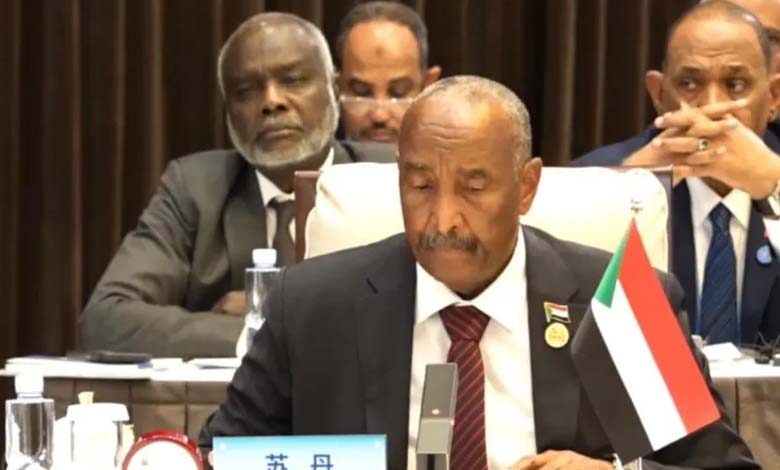How Al-Burhan Lost the Trust of the Islamists

The fall of El-Fasher exposed the depth of the crisis between General Abdel Fattah al-Burhan and the Islamic Movement, which had been one of his main allies at the outset of the war. Leaks from within the army and the movement reveal that their relationship has moved beyond mere political disagreement into open division and mutual distrust.
-
From Al-Bashir to Al-Burhan: The Muslim Brotherhood Continues to Wreck Sudan
-
The Islamic Movement’s Retreat and al-Burhan’s Silence: Questions Surround the Political and Military Cover Behind the Strategic Strikes in Port Sudan
The Beginning: An Alliance of Necessity
In the early stages of the conflict, al-Burhan reconnected with prominent figures from the Islamic Movement, seeking to capitalize on their organizational capacity and experienced fighters. His aim was to secure military superiority over the Rapid Support Forces, while the Islamists hoped to reclaim part of their lost political influence. Yet, this partnership was built on temporary mutual interests rather than genuine ideological alignment.
Decisions That Sparked Anger
After achieving partial control over some battlefronts, al-Burhan began implementing measures to curtail Islamist influence. He reassigned or sidelined key officers, froze certain economic portfolios, and restructured joint forces to diminish their authority within the army. These moves angered many within the movement, reinforcing the perception that al-Burhan was merely exploiting them as a short-term political card.
-
Precision Strikes Shake Islamist Camps in Port Sudan: Mass Escape and Suspicious Silence from al-Burhan
-
Mysterious Airstrike in Port Sudan Reveals Involvement of Foreign Experts and Iranian Arms… Silence from al-Burhan and the Islamic Movement Raises Questions
El-Fasher: The Breaking Point
The fall of El-Fasher became the defining moment that laid bare the depth of the rift. Poor coordination between army units and joint forces led to the collapse of the city’s defenses. Field sources confirmed that some Islamist commanders refused to follow direct orders from central command, contributing to the military breakdown. In the aftermath, Islamic Movement leaders began reassessing their ties with al-Burhan and concluded that the alliance had lost its strategic value.
Splits and Consequences
The crisis soon extended beyond the Islamists. Several armed factions affiliated with the army announced their withdrawal or began reorganizing their loyalties away from the central leadership. This disarray has deepened confusion and weakened morale within the military establishment. Intelligence reports suggest that mutual suspicion between al-Burhan and Islamist officers has eroded discipline and initiative across several fronts.
-
The Military and al-Burhan’s Ties to the Islamic Movement: Secret Agreements and New Fronts
-
Washington Accuses, while al-Burhan’s Government Denies the Use of Chemical Weapons
Loss of External Confidence
Internal divisions have also undermined regional and international support. Countries that once viewed al-Burhan as a reliable actor now question his ability to control his alliances and manage the conflict effectively. The debacle at El-Fasher further demonstrated his waning command and growing political isolation.
In summary, al-Burhan’s loss of trust among his Islamist allies stems from his policy of marginalization and the poor handling of internal alliances. The Islamists, feeling deceived and exploited, are withdrawing their backing, while al-Burhan finds himself facing a deteriorating situation marked by internal fragmentation, dwindling foreign support, and institutional instability. The current Sudanese political and military landscape suggests that the trust once binding the two sides has all but vanished, paving the way for deeper divisions and prolonged uncertainty.












